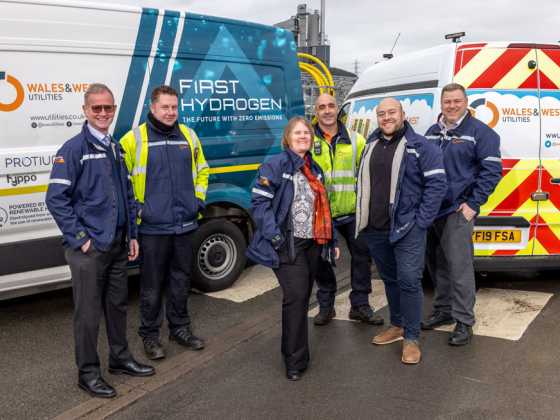Take action for fleet safety
Although road risk management is primarily about preventing death and serious injury, there are significant other benefits too, such as cost savings and a happier workforce, writes Brake
 In May the United Nations launched a Decade of Action for Road Safety to encourage governments, organisations and communities to step up efforts to end road death and injury around the globe.
In May the United Nations launched a Decade of Action for Road Safety to encourage governments, organisations and communities to step up efforts to end road death and injury around the globe.
However, while action on road safety is being galvanised at international level, many of those working in road safety in the UK are concerned about the future of their vital work, and the potential for road casualties to rise once more. Road safety charity Brake believes that fleet operators have a key role to play in ensuring that these devastating deaths and injuries continue to fall.
Fleet operators that are switched on to road safety will have noticed the impressive progress made in the past decade. The ‘noughties’ saw a detailed ten year road safety strategy introduced by government, incorporating targets for slashing road deaths and serious injuries by 40 per cent by 2010.
Alongside this, we had legislation banning hand-held mobile phones at the wheel, the spread of fixed speed cameras, major developments in safe vehicle design, our first 20mph towns and cities, and widespread government media campaigns to persuade people to drive more safely.
A RISE IN LEGISLATION
Companies were subject to increased regulation that has spurred progress in fleet safety. The development and introduction of corporate manslaughter legislation in 2007 helped to drive company resources into managing road risk. Increasingly, companies have also recognised the difference that managing road risk makes to their bottom line, by helping them to cut costs associated with crashes, including driver and vehicle downtime and insurance premiums.
As a result of progress in road safety in the past decade, casualties declined year-on-year and casualty reduction targets were met two years early. In 2010, 1,675 fewer people were killed and 16,389 fewer people were seriously injured on UK roads compared to in 2000.
This is a remarkable achievement, but we must remind ourselves that still every day five people are killed and 59 more suffer seriously injured in preventable road crashes, causing terrible and unnecessary pain and trauma.
In the past ten years, thinking about casualty prevention has also progressed, with some countries now adopting long-term visions of reducing deaths and serious injuries to zero. Brake agrees that this is ultimately what we should aim for in the UK.
Yet as we move into the new decade, government investment in road safety has quickly diminished. The dour financial climate means that every cause must fight its corner, but road safety – an area of work that saves lives and money – has been hit particularly hard compared to other key public health work.
SAVAGE CUTS
Cuts to road safety spending have been swift and savage. In June 2010, the government announced an immediate cut of 40 per cent to road safety grant funding for local authorities.
A few months later this funding stream was abolished completely. A year later, many areas have seen some or all speed cameras turned off, road safety partnerships closed down, skilled road safety practitioners let go, and school crossing patrols and road safety education scaled back. Traffic policing is another victim of the cuts: there is a growing body of evidence that traffic police are being cut at a much greater rate than other areas of policing.
The government’s Strategic Framework for Road Safety, published in May 2011, outlined their priorities for the coming decade. Brake has criticised the framework for its lack of leadership or bold action to continue driving down the number of people killed or seriously injured on roads as rapidly as possible. Brake was disappointed that the vision within the framework is about maintaining the status quo of Britain as a world leader in road safety, and that it does not include casualty reduction targets, which are shown to help spur action on road safety. Brake was also concerned that the framework includes little in terms of national policies that are internationally evidenced to address major causes of death and serious injury on roads.
Brake has grave concerns that casualty reduction could slow down or even cease as a consequence of funding cuts and lack of action on key road safety issues. There are many reasons why there have been fewer deaths and injuries each year in the past decade. Education, enforcement and engineering play a vital role. All three have come under significant pressure in the past year.
Because of this it is more important than ever that the private sector continues to contribute to safer roads, by managing their road risk and, whenever possible, engaging the wider community and showing leadership on road safety.
A CALL FOR ROAD SAFETY
Brake urges companies with employees who drive for work to make road safety a cornerstone of their CSR strategy as well as following best practice fleet management. Given that a third of road deaths and serious injuries are thought to involve at-work drivers, companies embracing fleet safety practices is an important way to keep driving needless casualties down.
In the next decade it is likely that fleet safety will become an even more fundamental part of basic good business practice as the pressure to drive down costs continues alongside the need to present a socially responsible face to customers. Every company that employs people who drive as part of their job can reduce their crash rate, costs, and their impact on the environment through implementing best-practice fleet safety practices.
There is now a huge body of evidence on what constitutes best practice in fleet safety, and the excellent returns companies can generate through investment in this area. The Fleet Safety Forum, an information-sharing service run by Brake, is an ideal place to start, whether your company has existing policies that need fine-tuning or is just developing its approach. It provides fleets with up-to-date guidance, international research and best practice case studies to help you to tackle road risk within your company and learn from what others are doing in the sector. It can also provide you with the ammunition you need to take the case for investment in fleet safety to the board.
BENEFITS OUTWEIGH COST
Although road risk management is primarily about preventing death and serious injury, there are a range of benefits to companies following a socially responsible best practice model. Managing road risk is not cost-free but there is extensive research demonstrating that the payback outweighs the cost very quickly. Better incident rates can lower vehicle insurance premiums, cut repair bills and avoid down time of vehicles and employees after a crash. Properly maintained vehicles, driven safely within speed limits, will use less fuel, a cost that has increased significantly in recent times.
Looking after the welfare and safety of staff can also improve relations between a company and its employees. A happy, well-trained workforce, will feel engaged in promoting the success of their company which can improve productivity, boost morale and reduce staff sick-leave and turnover.
Having a good record on road safety and working in the community to make roads safer for everyone also benefits the image of a company.
RECOGNITION FOR SAFETY
Many firms that develop innovative and effective road risk strategies win awards, such as a Fleet Safety Forum’s Awards for Excellence. Some go on to speak at national conferences to share their experiences, raising the profile of the company and extending contact networks. A company’s reputation can make all the difference when it comes to winning contracts as, in today’s market, social responsibility is seen as the mark of a well organised and progressive organisation.
Many people now believe that companies have an ethical duty to minimise any negative social and environmental impacts of their work. This includes reducing the risk their fleets pose to other road users and giving back to the people they serve through community engagement. Getting staff involved in road safety campaigns can also improve team work and morale as well as encouraging them to drive safely.
Brake encourages fleet operators to use Road Safety Week on 21-27 November to show external leadership in road safety, as well as building a road safety culture internally (see below).
Companies have a pivotal role to play in continuing to drive down devastating and costly road casualties in the next decade – and they can reap many benefits from fulfilling this role. In an unstable financial climate, companies are increasingly driven to develop their fleet safety work by the savings it generates, and their experiences help to demonstrate that road safety is worth investing in. Companies embracing fleet safety best practice will continue to reap rewards in cash and reputation. Brake will continue its work alongside these companies to advise, guide and share evidence on the enormous value of fleet safety.
Subscribe to Brake’s Fleet Safety Forum and receive the latest research, resources and guidance for just £155+VAT per year.
FOR MORE INFORMATION
www.fleetsafetyforum.org
01484 559909
forum@brake.org.uk.
ROAD SAFETY WEEK
Road Safety Week is the UK’s flagship road safety event, coordinated annually by Brake and now in its 15th year, this year taking place 21-27 November. It’s an opportunity for companies to develop and progress their contribution to safer roads, and publicise their commitment to this issue. Hundreds of companies get involved each year by launching safe driving programmes for staff, promoting road safety messages in their newsletter, setting up road safety displays, and working with the community to promote safer road use. Given that this year’s Road Safety Week is the first to take place during the global Decade of Action for Road Safety, Brake is hoping that more fleet operators will get involved than ever before.
Sign up to get involved in Road Safety Week at www.roadsafetyweek.org.uk.






